
Further Advocacy Resources

Recommended Resources - Free from the Internet
Animal Welfare
World Animal Net Resources
World Animal Net (WAN) resources include further background information on various related subjects, such as: campaigning, lobbying, research, investigations and media.
WSPA Member Society Manual (2006)
WSPA’s manual includes various relevant chapters, including: Part 2 Chapters 9 (Campaigning), 10 (Lobbying) and 11 (Media).
Other NGO Resources
Amnesty International Campaigning Manual
Amnesty International Publications, London, 1997. A reference book aiming to pass on the experience of 35 years of AI campaigning. It is easy to read and full of interesting information. Advocacy principles are the same, whatever the issue.
VSO – Voluntary Service Overseas (February 2012). Participatory Advocacy: A toolkit for VSO staff, volunteers and partners.
ISBN 978-1-903697-17-7.
A comprehensive advocacy toolkit, which uses ‘best practice’ from across the development movement.
Intrac Advocacy and Campaigning Course Toolkit
Advocacy training toolkit from the International NGO Training and Research Centre (INTRAC).
Networking for Policy Change: An Advocacy Training Manual
The Policy Project by The Futures Group International. A project of the US Agency for International Development. First printed October 1999.
A comprehensive advocacy manual.
Advocacy: Building Skills for NGO Leaders.
Centre for Development and Population Activities (CEDPA). 1 November 1999.
CEDPA’s manual is based on CEDPA’s experience in building the skills of nongovernmental organization (NGO) leaders to advocate for change in the reproductive health arena. It is in a training workshop format, but contains some useful background information.
Tearfund International Learning Zone – Advocacy
Includes training materials and advocacy toolkit
‘A’ Frame for Advocacy from the Population Communication Services, Johns Hopkins School of Public Health, USA.
A concise and effect advocacy guide, using a new framework
Other Available Resources
Internet
Creating Campaigns that Change the World
Ideas and lessons from successful campaigns of the past, such as the Jubilee 2000 Campaign and the International Campaign to Ban Landmines, as well as many new initiatives.
A New Weave of Power, People and Politics: The Action Guide for Advocacy and Citizens. By Just Associates, 2002
Advocacy training tools and know-how, based around power and the building of constituencies.
Policy Engagement: How Civil Society can be More Effective
Overseas Development Institute. 2006
Tools for Policy Impact: A Handbook for Researchers
Overseas Development Institute. Daniel Start and Ingie Hovland. October 2004
Books - to Purchase
Campaigning... the A to Z of Public Advocacy
Des Wilson. Hawksmere Ltd. 1994.
The Campaigning Handbook (2nd Edition)
By Mark Lattimer. Published by Directory of Social Change
News for a Change: An Advocate’s Guide to Working with the Media
Sage Publications, Inc. Wallack, L. et al. 1999
Pedagogy of the Oppressed
Paulo Freire. September 2000.
Practical Techniques for Effective Lobbying.
By Hawksmere Special Briefing. Charles Miller.
Test home

About Us
World Animal Net (WAN) was established to improve communication and coordination between the world's animal protection groups. Today, WAN is the world's largest network of animal protection societies, with over 3,000 affiliates in more than 100 countries and Consultative Status at the United Nations. WAN works from offices in the United Kingdom, The Netherlands, the United States, and South Africa.
Other Events

Specific Event Calendars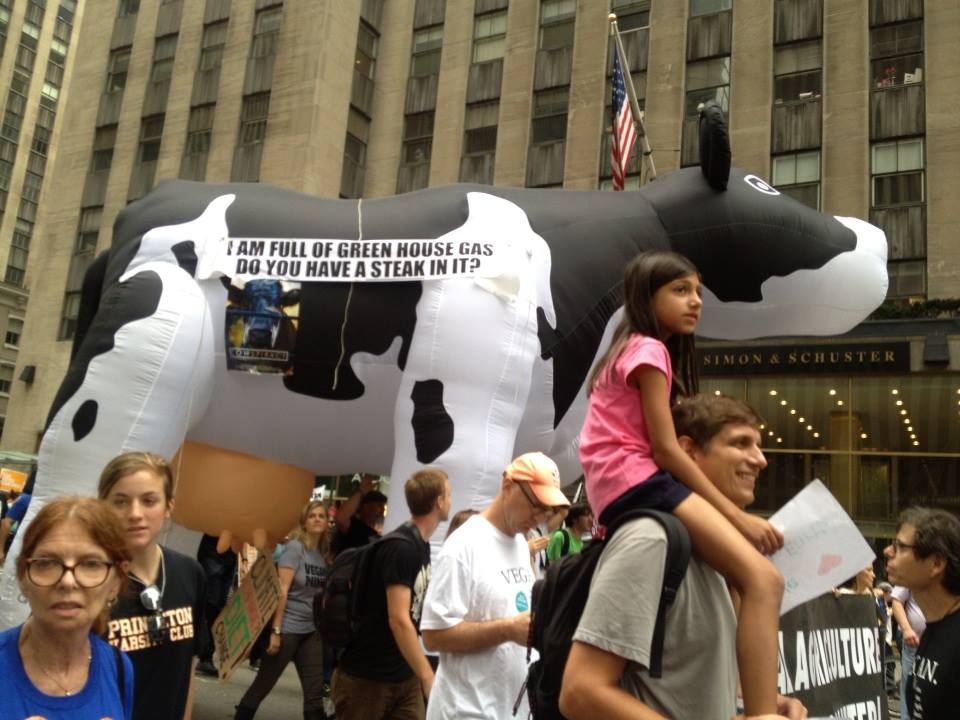
Vegan and Animal Rights Events
Upcoming Vegetarian and Vegan Events
Academic Animal Protection Events
Events based in the United Kingdom
Ongoing Movie Screenings
Cowspiracy: The Sustainability Secret
World Animal Net's Events

The World Animal Net Events Calendar is a comprehensive calendar of international events related to animal welfare. We include the following types of events in our calendar:
- Academic conferences exploring human-animal relations, animal welfare, animal law, animal rights, etc.
- Conferences hosted by animal protection organizations.
- Vegetarian, vegan, and cruelty-free festivals.
- Movie screenings for documentaries or other productions promoting animal protection.
- Professional meetings by animal policymaking bodies such as the Convention on International Trade in Endangered Species of Wild Fauna and Flora (CITES), the Food and Agriculture Organization of the United Nations (FAO), and the World Organisation for Animal Health (OIE).
- Demonstrations.
The World Animal Net events calendar is a service to the animal protection community. While the vast majority of events listed are those that promote animal welfare and protection, we will also occasionally list other events that may be useful for animal advocates or organizations, such as professional development opportunities or events hosted by certain animal-use organizations.
If you are aware of or are hosting an event that you feel should be listed, please register it! We will be happy to review the event and post it in our calendar at no cost to you.
Please note that inclusion of any event in the calendar should not be taken as an endorsement of the aims or methods of the event or the event's sponsors.
WAN's Dedicated Team of Volunteers
WAN's volunteer team has been crucial in updating and enhancing the WAN Directory of Animal Protection Organizations, and we are happy to recognize the contributions that each volunteer, both past and current, has made towards this goal. To our volunteers- THANK YOU! We could not do it without you.
If you are interested in becoming a WAN volunteer, please visit our volunteer information page.
Current Volunteers
 Bettina Strehle
Bettina Strehle
Germany
Since April 2014, Bettina has worked on updating the listings of German-speaking countries, including Austria and Germany.
Noopur Pathak
Burlington, Massachusetts, USA
Since August, 2014, Noopur has helped in fixing broken links in the Directory and has assisted in MySQL coding needs.
Past Volunteers
Abhishek Naik
SUNY College at Old Westbury - Old Westbury, New York, USA
Abhishek helped to fix broken links in the Directory.
Alexis Guida
Bridgewater State University - Bridgewater, Massachusetts, USA
Alexis helped to fix broken links in the Directory.
Janine Slaker
Lansing, Michigan, USA
Janine helped to fix broken links in the Directory.
Rhonda Lechten
Boston, Massachusetts, USA
Rhonda helped to correct bounced email addresses and made updates for a number of Australian organizations.
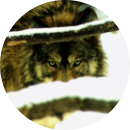 Thành Nguyen
Thành Nguyen
University of Massachussetts, Boston - Dorchester, Massachusetts, USA
Thành helped to research and update all Vietnamese listings in the Directory. Thành is currently a sophomore biochemistry major at Umass Boston. He is interested in animals and working hands on with them, both domestic and wild and especially those belonging to the canine and feline families.
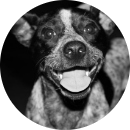 Trudi Gopie
Trudi Gopie
Boston, Massachusetts, USA
Trudi helped to fix broken links in the Directory. Pets have always been a part of Trudi's life. She currently owns two little rescue pups that make her life that much sweeter each day.
 Zane Gavin
Zane Gavin
Northeastern University - Boston, Massachusetts, USA
Zane helped to fix broken links in the Directory. Zane is a mechanical engineering major who is passionate about domestic animal protection and knows that making a small change and putting in a little effort can have tremendous impact. Even if not studying directly, Zane hopes to make as big of a splash in the field of international animal protection as possible.
Past Interns
Julie Fields
Dickinson College - Carlisle, Pennsylvania, USA
Julie updated all Canadian organizations in the directory, and conducted a self-directed policy analysis of the Canadian ban on gestation crates and the dangers of livestock boards and similar policy structures for animal protection.
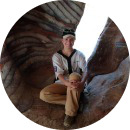 Petra Solarik
Petra Solarik
Wheaton College - Norton, Massachusetts, USA
Petra updated all Middle Eastern listings in the Directory, and conducted a self-directed comparative analysis of animal protection and welfare policies in selected Middle Eastern countries. She is a biology major with a particular interest in animal rehabilitation and wildlife rescue projects. Both wildlife and domestic animal issues interest her and so she hopes to use her education and experiences to make a small change in the ever growing field of animal protection.
The World Animal Net International Directory of Animal Protection Organizations

History
In 1986 World Animal Net president and co-founder Wim DeKok began compiling information on the organizations working for animal protection around the world. Eventually, this work led to the publishing of the World Animal Net International Directory of Animal Protection Organizations. The directory garnered many accolades and, for the first time ever, allowed organizations to search for and contact peers working on similar issues on the other side of the world.
As the internet became more accessible around the world, the hardcopy directory was eventually replaced with the online version. The online version is not only more ecologically-friendly, but also brings the significant benefit of allowing anyone from anywhere in the world to search the directory at no cost.
Today, the directory has become an invaluable tool to both individuals and organizations working in animal protection worldwide. Individuals who wish to report animal cruelty and neglect witnessed in their communities or abroad can search the directory for the appropriate local organizations to notify. Organizations frequently use the directory to reach out to fellow animal protection groups to form collaborations, garner support, and spread awareness for new initiatives.
Maintenance
The directory is maintained by a team of dedicated volunteers who work closely with WAN staff to ensure that the information in the directory is up to date and accurate. With 17,000 organizations in over 130 countries, maintenance is no small feat.
Directory Users
As a directory user, you play an important role in helping us maintain the directory listings. If you find that there is inaccurate information, questionable listings, or missing organizations, please let us know! It is only through constant assessment of the directory that we can ensure the quality of the information. You can report a problem by following the "read more" link in a directory listing, or by using our general contact form.
Organizations
If you are the representative of an animal protection organization, we encourage you to check your organization’s listing and ensure that the information we have is accurate. You can do so by logging in using the portal on the right. If you cannot remember your login information, please contact us directly.
If you do not see your organization listed, please take a moment to register. We will review your organization’s information prior to publishing it in the directory.
Organizations Listed
Organizations included in the directory encompass a wide range of philosophical viewpoints and methods of action. This means that organizations ranging from those conducting pet rescue, promoting vegan or vegetarian eating, and even certain environmental groups are included in the directory. The common denominator of all groups is that animal protection must be a component of the organization’s work.
While a handful of zoos may meet this criteria, we do not list any organization that raises animals for food or fiber, or breeds animals for personal gain. We also do not list individuals, such as veterinarians, in the directory.
Please note that the inclusion of any group in the directory should not be taken as a recommendation of its aims, policies or methods.
Ensuring Stable and Peaceful Societies
Download a PDF of the briefing
Summary
The root causes of conflict and violence need to be examined, and educational programs developed to deal with these at the root. There are existing ‘tried and tested’ educational programs available, including humane education – which creates a culture of empathy and caring by stimulating the moral development of individuals to form a compassionate, responsible and just society.
Background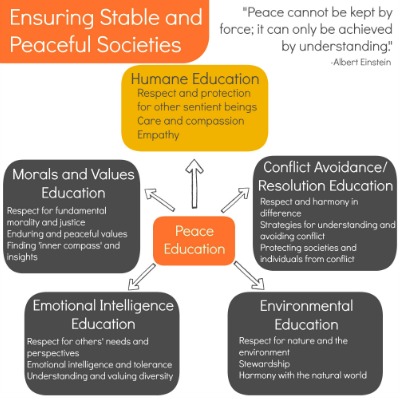
Key Sources of Conflict
The concept note refers to the increase of conflict and violence in societies. This is scarcely surprising, given the current focus, priorities and direction of many societies across the world. We are becoming more materialistic, more individualistic and selfish, and increasingly driven by the quest for worldly success and prosperity. Growth of economies and acquisitive personal aspirations lead to conflicts over scarce resources. Lack of equity can also contribute to conflict … but even this would not be a problem if these was a spirit of interconnectedness and giving in society. But our priorities and values are changing – mostly to the detriment of wisdom, compassion and – ultimately - our own happiness. We increasingly communicate through trite, short-hand phrases, adopting and justifying ideologies, instead of developing our own insights and wisdom. Soul-searching and personal development are no longer prioritized, as conformity is easier and more likely to gain peer acceptance.
Importantly, we are also becoming more urbanized, and losing our deep connection to nature and animals – and often to our human support systems (our families and communities).
Working at the Root
Peace will not be achieved by patchwork reforms. The development of peace has to begin with understanding ourselves and the nature of the world we live in.
We humans have a built in code in our DNA that speaks to us of right and wrong. Our duty to our learners is to assist them to reach inside and interpret this code, so its guidance can be used when they are faced with hard decisions and difficult situations. The wisdom they are developing will affect their character, values, and morality. Values that come from the heart provide a foundation of strength and goodness that lasts a lifetime, and can be brought into play whenever new challenges arise. In our new fast-moving world, the development of wisdom is crucial.
Conventional education is the transfer of knowledge to pass examinations and – sometimes – to gain employment. This is significantly lacking for the development of the whole human. In many ‘developing’ countries, education is still by rote, passing on formulaic learning with no development of insights, intelligence and values. In such cases, Universal Primary Education is of little value in providing much-needed life skills?
World Animal Net strongly advocates the educational approach for the development of peaceful societies, working at the root of the problem for sustainable change.
Humane Education
Humane education is one tried and tested educational approach which could be used for this purpose. It is defined as:
“A process that encourages an understanding of the need for compassion and respect for people, animals and the environment and recognizes the interdependence of all living things”.1
The aim of humane education is to create a culture of empathy and caring by stimulating the moral development of individuals to form a compassionate, responsible and just society. It is a means of introducing children to the reactions and emotions of animals, as well as linking this to an understanding of environmental issues and ecosystems. It has the potential to change hearts and minds – and ultimately our society.
There is a well-documented correlation between childhood cruelty to animals and later violence and criminality. Humane education is needed to develop an enlightened society that has empathy and respect for life, thus breaking the cycle of abuse.
The following claims were made for humane education by the US National Parent-Teacher Association Congress in 1933:
"Children trained to extend justice, kindness, and mercy to animals become more just, kind and considerate in their relations to one another. Character training along these lines in youths will result in men and women of broader sympathies; more humane, more law-abiding - in every respect more valuable - citizens. Humane education is the teaching in schools and colleges of the nations the principles of justice, goodwill, and humanity towards all life. The cultivation of the spirit of kindness to animals is but the starting point toward that larger humanity that includes one's fellow of every race and clime. A generation of people trained in these principles will solve their international difficulties as neighbors and not as enemies."
Humane education is the building block of a humane and ethically responsible society. When educators carry out this process using successfully tried and tested methods, what they do for learners is to:
- Help them to develop a personal understanding of ‘who they are’ – recognizing their own special skills, talents, abilities and fostering in them a sense of self-worth.
- Help them to develop a deep feeling for animals, the environment and other people, based on empathy, understanding and respect.
- Help them to develop their own personal beliefs and values, based on wisdom, justice, and compassion.
- Foster a sense of responsibility that makes them want to affirm and to act upon their personal beliefs.
In essence, it sets learners upon a valuable life path, based on firm moral values.
Through humane education, teachers are able to reach into the hearts of learners, begin by kindling their natural interest in animals, and move towards developing a mind-set of empathy, care and respect for all life. Rekindling the spirit of care and respect for life, learners find a new sense of self-esteem and confidence.
"Empathy is the most valuable social resource in our world. It is puzzling that in school or parenting curricula empathy figures hardly at all, and in politics, business, the courts, or policing, it is rarely, if ever, on the agenda. The erosion of empathy is a critical global issue of our time."Simon Baron-Cohen, Professor of Developmental Psychopathology at the University of Cambridge, UK
Research has shown that humane education has a wide range of positive social and educational outcomes. The empathy generated extends to people of a different gender, ethnic group, race, culture or nation. It is also a sound investment - working on the prevention of criminality and antisocial behavior, which can have a massive societal cost, both in terms of reduction in 'quality of life' and in financial costs incurred through criminal damage, maintenance of law enforcement systems, court costs, prison systems and juvenile work.
“As a teacher with 30 years of experience, I do not believe that we can solve violence in our society with high fences and razor wire. If we are to fight violence effectively and uplift our communities for a sustainable future, we will have to reach into the hearts of learners and develop that vital quality called 'empathy'.”Cape Town school teacher, Vivienne Rutgers
World Animal Net believes that humane education should be an essential part of a student’s education as it reduces violence and builds moral character. It can also play a significant role in the development of stable, caring and peaceful societies.
There are also other educational initiatives that could help, including peace education and values education.
Human Trafficking and the Illegal Wildlife Trade
The concept note makes specific mention of the illegal trade in wildlife, in the same vein as human trafficking, – pointing to both as ‘external stresses’. As an animal welfare organization, World Animal Net is greatly concerned about the illegal wildlife trade. However, we feel that these are probably both symptomatic of the wider problem in current society: the erosion of values and respect for human life, and the prioritization of economic gains and acquisition (i.e. an effect, rather than a cause).
Call to Action
World Animal Net urges the inclusion of humane education, and peace education more broadly, in the post-2015 development agenda, as a sustainable intervention towards the development of stable, caring and peaceful societies.
This work could be coordinated and examined, to include all tried and tested educational initiatives (including: peace education, humane education, environmental education and values education) in the search for integrated educational solutions. Programs could then be developed and piloted, using best practice, evaluated and subsequently rolled out with the support of donors and development partners.
1See CARA Welfare Phillipines, Humane Education, (last visited, Mar. 28, 2014).


